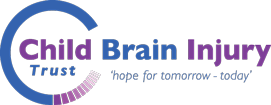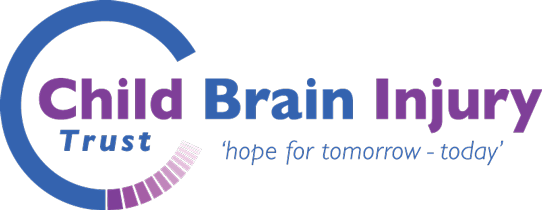How are you doing today?
‘How are you today?’ A question we get asked very frequently. But when answering this question we often give an automated reply along the lines of ‘I’m fine, how are you?’. Do we actually know how we are doing? When was the last time you checked in with yourself and asked yourself ‘am I doing ok?’.
Poor sleep and night mares
Poor sleep has a huge impact on how we feel throughout the day. When feeling tired our bodies and mind can go numb simply because we struggle to process the information that is coming at us. A good night’s sleep is therefore very important to help your body and brain recover following an injury. The restorative function of sleep helps to keep you physically, emotionally and cognitively well. An ABI brain may have to work twice as hard to cope with everyday demands, as the ‘automated’ pathways it used to use may have temporary roadblocks. Therefore, it is not uncommon that feelings of tiredness persist after suffering ABI. However, it may not be that easy to get enough good quality sleep. Bad dreams or night terrors interfere the restorative function of sleep, making it unpleasant to go to sleep following a traumatic event. Low mood or anxiety are also commonly associated with ABI and their negative impact on our quality of sleep has often been reported in scientific research. So despite feeling tired, it is not always possible to sleep well because of the emotional impact of the injury may lead to stress, anxiety and low mood.
Understanding tiredness
Feelings of tiredness following ABI can have several reasons. The physical changes following ABI cause tiredness, but psychological factors can also contribute to feeling worn out or fatigued. Feelings of low mood can lead us to feel tired and unmotivated. In addition, feeling under pressure to perform at levels you were performing prior to ABI can lead to stress and can cause anxiety. To make matters worse, this can also go the other way. Feeling constantly tired can cause you to experience psychological stress be it anxiety or low mood. This vicious circle is not uncommon.
Dream horses
Horses are highly social animals who live in big numbers. They rely on their fellow herd members and look out for each other when there is potential danger in their near environment. Being a prey animal, their survival relies on being able to function together as a group. They live in a strict hierarchy and each horse in a herd has his/her role. Not unlike humans in the work force, they respect each other’s role and rely on all herd members to carry out their ‘job’ to contribute to the group. Horses cannot talk. Communication within the herd is done non-verbally. Horses have to sense what’s going on around them and with each other. They do this by reading each other’s body language and energy levels. Similarly, to us humans, raised energy levels is indicative of stress or danger. If one horse in a herd is stressed, it is not long before the whole herd is alert. This also goes for relaxation, when horses relax they have to relax as a group. You can’t go for a nap when the lead horse has decided it is time to move on to greener pastures.
How horses help us identifying how we feel
In equine therapy and learning, I work with horses to help people reconnect with how they are feeling. Becoming aware of your emotional self and physical self is an important part of understanding how you feel and where you are at that day. We may not necessarily be able to change it but once we know where we are at we can make adjustments that will help you cope.
Because horses naturally mirror each other’s behaviour and emotional states, they are really good at letting us know how we feel. Together with the horses I help clients become aware of how they are truly feeling. By tuning the mind in to what the body is doing we find some authenticity. Horses are drawn to this authenticity. When someone has really tuned in to how they are feeling, and therefore are very present in the moment, often the horse will walk over.
Horses have no understanding of lying or judgement. They don’t understand us when we are untrue to ourselves. They will react to this by either withdrawing themselves or getting somewhat stressed. Because of this I can tell when a client is being authentic and switched on to how they are that day or not. This may sound very simple, knowing how you feel, but it appears that many people struggle with this.
One exercise that facilities relaxation and calming down is to touch the horse’s belly to feel and sense his/her rhythm of breathing. With one hand on the horse’s belly the client is instructed to mimic the breathing pattern of a horse. The bigger the creature the slower the breathing. The horse is bigger than the client so they have to slow their breathing down. Slow breathing is associated with relaxation, so it often doesn’t take long for the client to feel calmer. This calmness is mirrored by the horse who slowly starts relaxing his muscles, nose, then the head lowers, the eyes go soft and the ears go floppy. The concentration required to stay in rhythm with the horse often leads to switch off all the other things going on in life. True relaxation enfolds. Once a client feels relaxed it is much easier to identify how they are feeling.
Case study
To illustrate the above I want to share with you a case study of a group of clients who recently visited Equilore to work with the horses. This group of people has been funded by a local charity that was set up to support those affected by cancer. In this particular group there were several people who had personally been affected by cancer and had been undergoing treatment of sometimes multiple surgeries and chemotherapy. These treatments are well known for their destructiveness to the human body, as unfortunately to get rid of the bad cells, some good cells have to be attacked as well. Most people in the group were exhausted. Emotionally and physically. The horses mirrored this. During the session the horses appeared lethargic and unwilling to work with the clients. At first the group attributed this to the recent hot weather, the fact that the horses were bothered by the flies. When we worked with the horses, they were slow to move, sniffed the ground and found places to lie down and roll. I questioned what was going on, what did the clients see in the horses. Tiredness was mentioned and someone reflected they felt quite tired themselves. Not long others noted that they felt worn out themselves, just like the horses appeared. The picture above was taken not long after that particular session. The horses had absorbed the (lack of) energy in the group and were flat out.
Conclusion
Acquired brain injury widely impacts many different aspects of someone’s life. Changes in someone’s physical abilities, perhaps being unable to move as fluently as before, changes in the ability to regulate emotions, ability to think, remember and plan (cognitive changes) and the ability to interact with others (social changes). Simply put, the impact of ABI is far reaching and can induce stress making a good night’s sleep very difficult. Not only for the person who suffered the injury but also for those around them. With so many areas affected, you may not be aware of how you are feeling at a particular point in time. Horses, who naturally mirror each other’s behaviour for their own survival, are very good at mirroring how we feel. This is very useful when we have lost touch with it ourselves. In equine therapy, clients work with the horses to learn to relax and tune in to how they feel. Once this is achieved the horse often looks to connect with these people because authenticity makes a horse feel safe. With this connection further work on self-esteem, confidence and assertiveness is undertaken, often leading to improved mood and decreased anxiety/ stress levels and improved sleep.
**Please visit our Services Guide to find out more about Equilore and their services**


